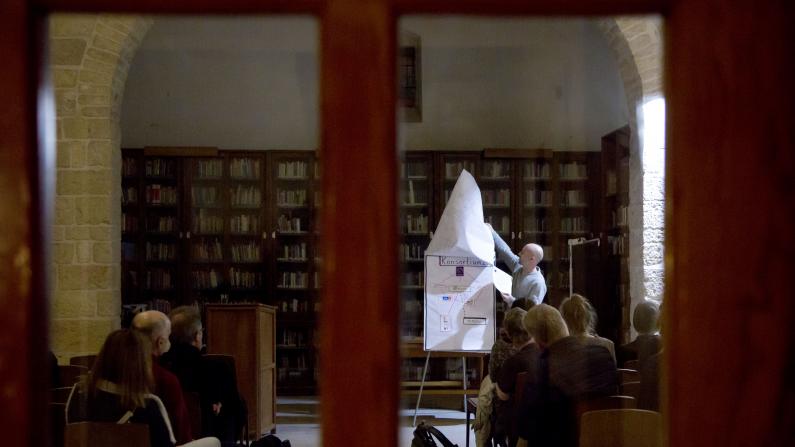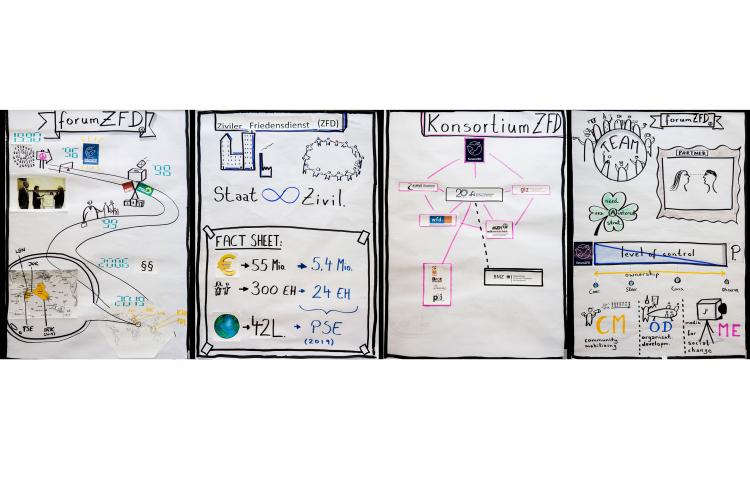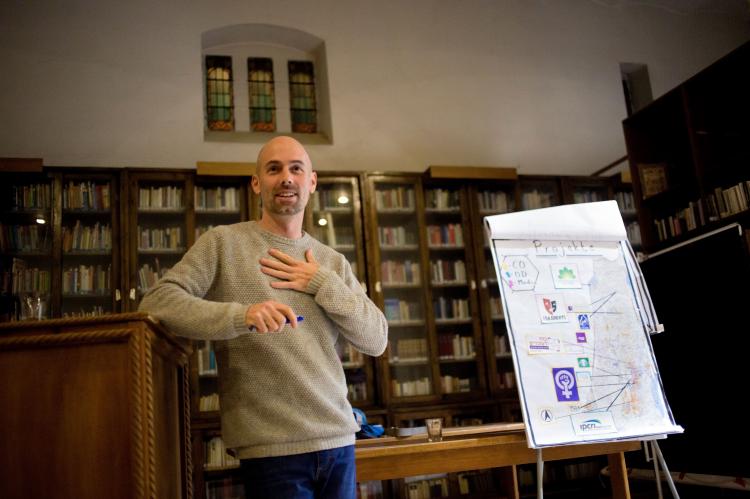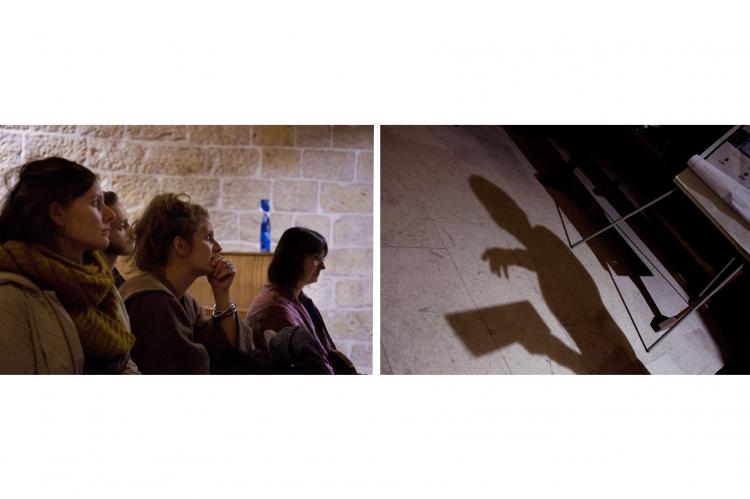
It is evening and most shops in the old city of Jerusalem are already closed, when our regional director Mike Thanner arrives, carrying a huge, white flipchart. The German congregation of the Lutheran Church of the Redeemer has invited him to speak about the Civil Peace Service and its efforts to counter fragmentation in Palestine and Israel. Mike has prepared five big posters in order to visualize his lecture. Using his own drawings, he hopes to make forumZFD’s work more accessible to the diverse crowd that is slowly arriving at the church's library.
It is not a coincidence that Mike uses posters for his presentation, after all, visualization is an important tool for our daily work at forumZFD. We use it every time we have to break down complex issues such as explaining what we are actually doing as a “Civil Peace Service” in Palestine and Israel. Clearly, the concept of peacebuilding is abstract, and it is hard to imagine what our work looks like in our day-to-day work. Especially in Israel and Palestine, the word “Peace” has an ironic aftertaste and sparks images of naïve foreigners who arrive with unrealistic expectations and little understanding of the local context. Drawing by drawing and poster by poster, Mike tries to dismantle the construct of “peace-building” with insights from our work. He talks about how the Civil Peace Service (CPS) was formed as an alternative to military interventions in conflict, how the five CPS organizations differ and relate, and about the challenge to create sustainability in a context that changes so fast.
Regional Director Mike Thanner uses visualization techniques to capture and brainstorm on our work.
It is not easy to convey our way of working to new partners. It takes a while until they see that “eye-level partnerships” and “local ownership” are not just buzz-words to us. “Despite the fact that we have a budget for shared activities, we are not a donor organization. Our biggest resources are the people who work for us and the skills they can provide. Then, it is about developing processes and activities together with the partner organization. Each of us can contribute in their own way”, Mike emphasizes.
The kind of work we do is not only hard to explain, but also hard to measure. “When I was working in humanitarian aid things were so easy.”, Mike recalls. “Did you build all the wells that you planned to build? If yes – good, if no you explain why and that’s that.” It is different when your main vision is to reach the hearts and minds of people. “So how do you evaluate if you have done a good job?”, one lady in the audience asks. “It goes back to building trust and strong relationships.”, Mike explains. “When you have this foundation, people will openly tell you how they feel. We know that we have done something right if people come to us and share their thoughts after a workshop or an activity….when we see that they themselves reach their goals”.
This kind of feedback sets the tone for our work, for the tools we use, and the focus we set. At times, our ability to adapt to the needs of our local partners makes it challenging to explain who we are and what we do - but it is this very flexibility that allowed us to discover that some hand-drawn posters can be more engaging than the fanciest digital presentations. While our work sometimes moves slower, is harder to explain and more difficult to measure than building wells or being a big donor, we truly believe that we have found our own, unique way to bring change. It was a pleasure to share this journey with such an inquisitive audience!
If you want to learn more about our work, please do not hesitate to get in touch via p:+972 (0)2 6722786 or via jerusalem@forumZFD.de. We are always happy to bring some paper and pens and exchange knowledge and ideas!


